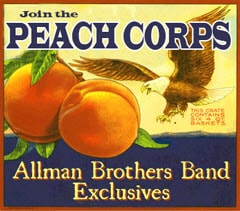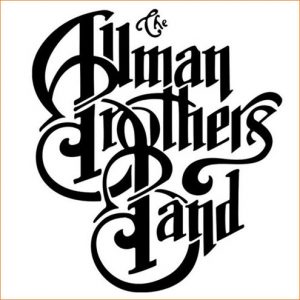By Wes Orshoski
Billboard Online
October 16, 2001, 4:00 PM

It’s the not knowing whether or not the rug may suddenly be pulled out from under his feet that has helped make Warren Haynes perhaps the hardest-working man on the so-called jam-band circuit.
“To me, musicians are like athletes,” the singer/guitarist says. “We have a somewhat limited window of opportunity in which to perform. I would like to think that, like John Lee Hooker, I’ll be performing until I’m 83. But you never know when the climate of music is going to change. For all I know, disco is coming back,” he adds with a laugh.
As a full-fledged member of Gov’t Mule, the Allman Brothers Band, and Phil Lesh & Friends, the 41-year-old, Asheville, N.C.-born artist certainly seems to be laying the foundation for John Lee-like longevity. During the past year, Haynes has found himself literally getting off one tour bus only to climb aboard another: He’s toured with each act, occasionally pulling double duty on nights when the Allmans and Phil & Friends shared a bill. In between tours, he also found time to record two discs’ worth of new, star-studded Gov’t Mule material.
But it’s a bittersweet twist of fate — the August 2000 death of Gov’t Mule bassist Allen Woody — that has made all this possible. At first, Woody’s death from undetermined causes at age 44 seemed a catastrophic blow to Haynes’ career. At the time, Haynes was a member of only Gov’t Mule, or “the Mule,” as the jammy, hard-touring blues-rock trio is known by its fans.
With drummer Matt Abts, Gov’t Mule was formed as a side project in 1994 by Haynes and Woody, then-members of the Allmans. In 1997 — eight years after Haynes and Woody (with what Haynes calls a “thundering approach” to playing the bass, full of fire and recklessness) provided the missing links the living, original members of the Allmans needed to relaunch the Southern rock giant — Haynes and Woody left the Allmans to focus on Gov’t Mule.
After several years of persistent roadwork, the act’s fan base and reputation for delivering killer live shows was spreading. Although the group owes less to Lesh’s Grateful Dead than it does to Otis Redding or Mountain, the rising popularity of jam bands was playing a major role. Gov’t Mule’s hard work-and Haynes and Woody’s risky move by leaving the Allmans-was paying off, it seemed.
So, with all eggs in one basket and the delicate chemistry of a rock trio ruined, Woody’s death seemed sure to not only signal the end for Gov’t Mule, but also certain to turn Haynes’ world on its ear. A somber Gregg Allman says it reminded him of the aftermath of his brother (and original Allmans guitarist) Duane’s 1971 fatal motorcycle crash. “It was exactly the same in that you had the survivors standing around saying, ‘What the hell we gonna do now?'”
As Haynes and Abts struggled with how, and if, to continue, band friend and Widespread Panic bassman David Schools began opening their minds to the possibility of continuing as a quartet. Meanwhile, other doors — some old, some new — began opening for Haynes.
The Allmans had dismissed guitarist/vocalist Dickey Betts just months earlier, and Lesh, five years after the death of Jerry Garcia, was in need of an adventurous guitarist. Both camps came calling, and Haynes accepted the invitation of each, under the condition that his priorities remained with Gov’t Mule, regardless of any uncertainty. “He’s got, like, eight irons in the fire,” Allman says. “And that may be his way of mourning-overcoming stuff, different people take care of that in different ways.”
Looking for “somebody who could play outside themselves,” Lesh was drawn to Haynes after being blown away by Gov’t Mule’s live version of Mongo Santamaria’s “Afro Blue,” from the band’s four-disc “Live With a Little Help From Our Friends.”
“He didn’t confine himself to that blues-rock/Southern rock kind of feeling, or material,” Lesh says. “I heard tremendous potential for going outside the envelope in Warren’s playing. It turned out that that potential is there and he does do that. He’s one of the few musicians that I know — or know of — that can throw all his influences away and just play the context, play in the moment. And it’s really a revelation when you come across that.”
Reuniting with Haynes — who scored his original Allmans gig after playing in Betts’ solo band for two and a half years — has proved “inspiring” for Allman. “Most guitarists, as they get older, they’ve got a million licks and they kind of — not rest on ’em — but just play those million licks,” he says. “But [Warren’s] still diggin’ in. It’s like he’s lookin’ for somethin’. And I’m catchin’ it from him again. And I, too, am lookin’ for somethin’. And, between me and him, we’re going to find it-a whole lot of it. We done found a bunch already.”
Haynes’ colleagues hail him for his compassion and kindness. ATO Records co-founder Chris Tetzeli says, “He’s arguably the nicest guy in music and such a soulful person that you immediately take such a liking to him.”
It’s this sentiment that helped Haynes and Abts pick up the pieces. After Schools and lauded pianist/keyboardist Chuck Leavell joined the Mule temporarily for its return to the road in fall 2000, Abts and Haynes set out early this year to persuade their favorite living bass players to play on the next Mule album, which was in the works prior to Woody’s death.
What began as a tribute to Woody rooted in fantasy has become “The Deep End, Vol. 1” (due out Oct. 23 via ATO) and “The Deep End, Vol. 2” (due out in spring 2002) — two new Mule sets featuring performances by such bassists as John Entwistle (the Who), Jack Bruce (Cream), Chris Squire (Yes), Flea (Red Hot Chili Peppers), and Les Claypool (Primus).
Haynes says, “We thought if we could get a few of our friends to come on board, then maybe they could help us get some other people.” And that’s what happened: Lesh enlisted immediately. Soon after, Claypool joined, bringing with him ex-Minutemen bassist Mike Watt, who in turn brought in Flea. Squire contacted Enthwhistle, and so on and so on. The sessions will be featured in “On the Banks,” a documentary film directed by Phish’s Mike Gordon to be issued by ATO early next year.
Haynes says phone calls and letters from Metallica’s James Hetfield, ex-Nirvana drummer/Foo Fighter Dave Grohl, Mountain’s Leslie West, and other artists who dealt with the loss of a bandmate have helped he and Abts continue.
“When you lose someone as close as Allen was to both Matt and I — both musically and personally — you go through all these emotions, and you feel like nobody in the world has ever felt that way before,” Haynes says. “But we started realizing that we weren’t alone and that maybe we could get past it and keep the music alive. And that became our mission.”



